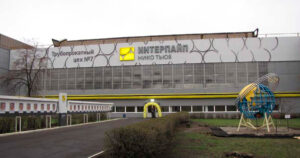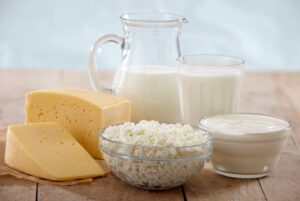
Participants in the panel discussion “Challenges of the Ukrainian Labor Market. Mobilizing Human Capital for Sustainable Reconstruction” at the forum on Ukraine’s reconstruction in Bucharest concluded that the country needs a two-pronged policy for sustainable economic recovery: creating conditions for the return of those who wish to do so, while simultaneously supporting the active diaspora as a resource for investment and knowledge transfer.
The panel was moderated by Adam Eberhart, Deputy Director of the Center for East European Studies at the University of Warsaw (SEW UW). The discussion was joined by Svitlana Kovalchuk, Executive Director of the Yalta European Strategy (YES) Bogdan Zavadetchik, President of the Charitable Foundation “Resources and Public Initiatives” in the Chernivtsi region Olena Tanasychuk, representative of the Ukrainian diaspora in the UK at Ealing Community & Voluntary Service (ECVS) Ania Abdulah, and Osamu Hattori, Head of the Japan International Cooperation Agency (JICA) office in Ukraine.
According to surveys cited by participants, most Ukrainian refugees would only consider returning if there were reliable guarantees of security and a stable economic situation. At the same time, statistics show that after two to three years abroad, the likelihood of returning decreases sharply due to deeper integration of people into their host countries, particularly through employment, children’s education, and access to social services. “The longer people stay abroad, the more their lives shift—and the harder it is to convince them to start from scratch at home,” Ebergart noted.
Separately, experts noted that the potential opening of borders could trigger a new wave of emigration, particularly among men of conscription age, who are currently restricted from leaving due to mobilization rules. Against this backdrop, participants emphasized the need for policies that, on the one hand, create the conditions for return—through security, jobs, housing, and access to services—and, on the other hand, support a strong and organized diaspora.
The discussion concluded that the Ukrainian diaspora can remain an important resource for the country’s development even without physical return, through investment, professional networks, educational and expert projects. “The question is not only how many people will return, but also how many of them, wherever they live, will remain actors in Ukraine’s development,” Kovalchuk concluded. Participants agreed that a coordinated human capital policy should be one of the key elements of Ukraine’s post-war reconstruction strategy.
The forum “Rebuilding Ukraine: Security, Opportunities, Investments” is being held on December 11-12 in Bucharest under the auspices of the Romanian Ministry of Foreign Affairs and the Ukrainian Ministry of Foreign Affairs and is organized by the New Strategy Center. According to the organizers, more than 30 panel discussions and parallel sessions are planned over two days with the participation of representatives of governments, international organizations, the private sector, financial institutions, and experts from Europe, North America, and Asia. The topics of the panels cover security and defense, infrastructure, financing and investment, green energy, digitalization, human capital, and cross-border cooperation.

Interpipe has signed an agreement to acquire ArcelorMittal’s Romanian pipe plant ArcelorMittal Tubular Products Roman S.A., the company announced.
The closing of the deal is subject to obtaining approvals from antitrust authorities and foreign direct investment. Until these conditions are met, the companies will continue to operate separately.
The company clarified that this plant is not related to another Romanian pipe company, ArcelorMittal, which Metinvest had previously planned to acquire.

The military proposes to introduce progressive annual remuneration for each full year of service and to establish the “Cross of the Long Guard” award. A corresponding petition on behalf of his comrades was registered by volunteer Senior Lieutenant Andriy Dmytrenko.
The petition proposes establishing an annual monetary reward for each full year of service during the war, which would double annually. Thus, for the first year of service, the reward could be 50,000 hryvnia, for the second – 100,000 hryvnia, for the third – 200,000 hryvnia, and for the fourth – 200,000 hryvnia.
The authors of the petition propose to establish payment for the actual period of service in wartime conditions, with those who have been demobilized also receiving payment for the years they have served.
At the same time, periods of unauthorized absence from the unit and other exceptions reset the term, and the calculation of remuneration begins from the moment of return to service.
In addition, the authors of the petition are initiating the introduction of a state combat award, the “Cross of Dovgoi Varti,” which is awarded after the first full year of service in wartime conditions and is supplemented with new elements for each subsequent year of service, becoming a visible symbol of long-term service, endurance, honor, and loyalty.
“This is not just another ribbon to wear on your uniform. It is a testament to a path that is invisible to the civilian eye. It is a new military tradition that the country must establish now,” the petition’s authors note.
The petition has now gathered more than 20,000 signatures.
The petition is available at https://petition.kmu.gov.ua/petitions/8625.

Insurance premiums accrued under international Green Card insurance agreements concluded by member companies of the Motor (Transport) Insurance Bureau of Ukraine (MTIBU) decreased by 3.9% in January-December 2025 compared to the same period in 2024, to UAH 5.042 billion.
According to the MTIBU website, the number of Green Card contracts concluded during this period decreased by 4.3% to 1.308 million.
At the same time, the amount of compensation paid on claims increased by 0.75% to EUR 46.125 million, while the number of claims paid decreased by 8.52% to 13,300.
The MTIBU is the only association of insurers providing compulsory civil liability insurance for owners of land vehicles for damage caused to third parties.
The Green Card is a system of insurance protection for victims of road traffic accidents, regardless of their country of residence and the country of registration of the vehicle. It covers 45 countries in Europe, Asia, and Africa.
According to a decision adopted by the General Assembly of the Council of the International Motor Insurance System “Green Card” in Luxembourg in May 2004, Ukraine has been a full member of this system since January 1, 2005.

The dairy industry, which is one of the key sectors of Ukraine’s agricultural sector, has retained its production base and is gradually recovering despite the full-scale war, Deputy Minister of Economy, Environment, and Agriculture Taras Vysotsky said at the XVII All-Ukrainian Conference “Dairy Business-2025” in Kyiv on Thursday.
The deputy minister noted that in January-October 2025, Ukraine produced almost 5.9 million tons of milk.
“An important trend is the growing role of agricultural enterprises: they already account for 45% of production, and their production volumes have increased by 7.6%, despite the overall reduction in livestock numbers. Quality is also improving: more than 55% of milk sent for processing meets the European ‘extra’ standard,” he wrote on Facebook.
Vysotsky emphasized that the industry is also actively working in foreign markets. In the first 10 months of 2025, exports of dairy products grew by almost 9%. Sixty-four Ukrainian companies have permission to export dairy products to the EU, 40 of which are milk processing plants.
“Despite the challenges, we are maintaining the stability of current indicators and forming a resource for further growth – this is our realistic and strategic focus. The next step is investment, modernization, and a clear move towards integration with the European market,” the deputy minister concluded.